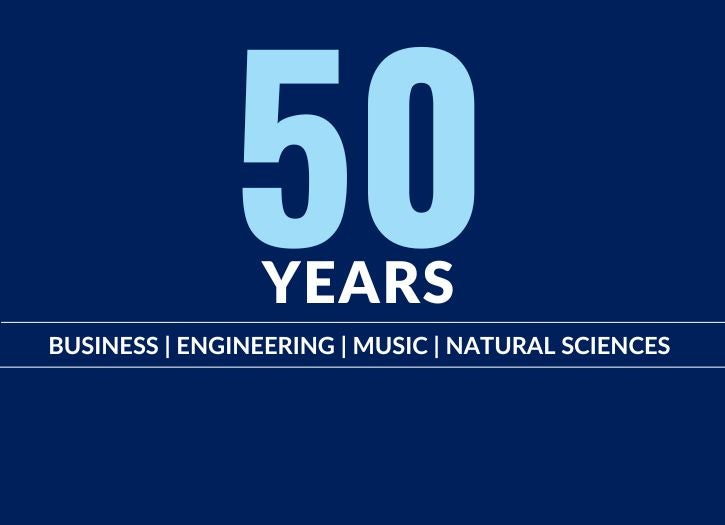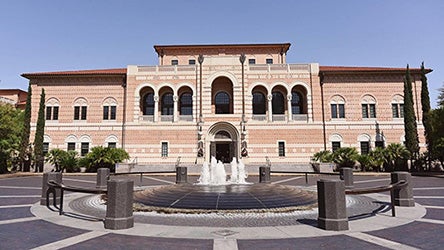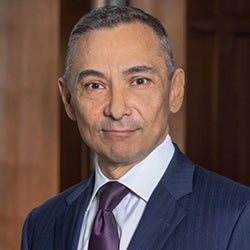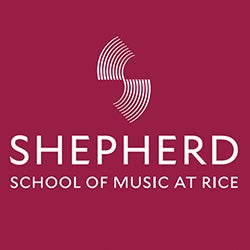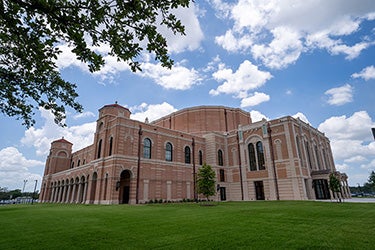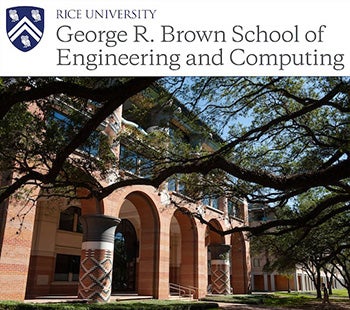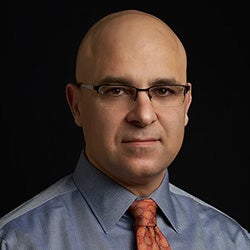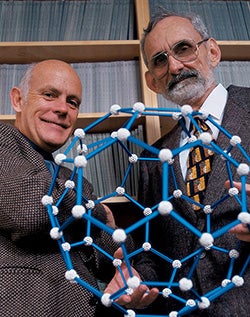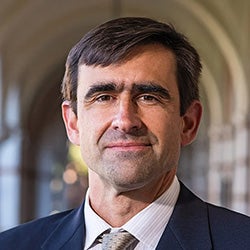As Rice University launches a new strategic plan Oct. 1 to shape its future over the next decade, the next year will be marked by a series of historic milestones that promise to further enrich the university’s legacy and impact. The Jones Graduate School of Business, Shepherd School of Music, George R. Brown School of Engineering and Computing and Wiess School of Natural Sciences are all commemorating their 50th anniversaries, celebrating half a century of excellence and innovation in education and research on campus and far beyond.
“As we celebrate these important milestones, we not only honor the vibrant history of service and impact of these schools but also embrace the future with renewed vigor,” Rice President Reginald DesRoches said. “This academic year, as we embark on a new strategic plan, we are committed to building on and expanding this remarkable legacy, ensuring that Rice University continues to be a beacon of knowledge and creativity for generations to come."
Jones Graduate School of Business
Established in 1974 with a significant gift from Houston Endowment, founded by Jesse H. Jones and his wife, Rice Business began as a small school offering a Master of Accounting and a Master of Business and Public Management. Initially, it had just three full-time faculty, four adjunct professors and 55 students in Sewall Hall. Fifty years later, the school has expanded to offer eight top-ranked graduate programs and undergraduate options for over 1,700 students. Key entrepreneurship initiatives, such as the Rice Alliance for Technology and Entrepreneurship established in 2000 and the Liu Idea Lab for Innovation and Entrepreneurship created in 2015, have significantly contributed to its national and international recognition.
The business school has relocated multiple times, culminating in the establishment of Janice and Robert McNair Hall in 2002. It has expanded its offerings to include executive education, professional MBAs and doctorate programs. Since joining in 2016, Dean Peter Rodriguez has launched four new programs — MBA@Rice, a hybrid MBA, an entrepreneurship minor and an undergraduate business major — addressing the complexities of the modern business landscape.
“Rice Business is shaping leaders to tackle global challenges,” Rodriguez said. “We continually innovate our electives and programs to equip students for success, balancing academic rigor with real-world expertise. For example, finance students learn from faculty who bring both research and practical experience, preparing them to think critically and lead in their fields.”
McNair Hall will soon expand to a new 112,000-square-foot building. To celebrate its 50th anniversary, Rice Business hosted a gala Sept. 26 to mark its past successes and future growth.
Shepherd School of Music
An endowment from Sallie Shepherd Perkins in honor of her grandfather, Houston banker Benjamin A. Shepherd, established a music department at Rice in 1950. That grew to become the Shepherd School of Music, founded in 1974, which began accepting students in 1975. Each year, the Shepherd School hosts over 400 free concerts and recitals, drawing about 70,000 attendees. The school has welcomed numerous world-renowned classical musicians for performances and master classes.
With a limited student body of 275, the Shepherd School offers individualized instruction from world-class faculty, allowing students to pursue degrees in orchestral performance, chamber music, voice and opera studies, piano, organ, composition and musicology. Its alumni have won Pulitzer Prizes and Grammy awards, debuted at Carnegie Hall and secured positions with renowned orchestras and opera companies worldwide. In the years since its founding, the school has become one of the nation’s most prestigious music programs.

“The Shepherd School has not only nurtured exceptional musicians but also shaped the future of music on a global scale,” Dean Matthew Loden said. “As we look to the next 50 years, we remain committed to cultivating the unique artistry that defines our school and draws exceptionally talented students and faculty.”
The 50th anniversary celebrations will stretch across the 2024-25 season as well as the 2025-26 season, highlighting the Shepherd School’s community ties, esteemed faculty and global alumni network while looking to the future of music. Planned events include a November alumni party, a free community day and bilingual concert of “Peter and the Wolf” in March and a gala in fall 2025, along with several commissioned works by composition faculty.
George R. Brown School of Engineering and Computing
Engineering has been a critical constituent of Rice’s legacy for over a century with more than a third of the current student body pursuing this field of study. Focused on developing responsible engineering solutions to address the world’s great societal challenges, the school was established in 1975 and named after George R. Brown, a major donor. In 2024, the school was renamed the George R. Brown School of Engineering and Computing to reflect its record of excellence in computing and the growing significance of artificial intelligence and machine learning in shaping the future of society. It has established itself as one of the nation’s best engineering schools, currently ranked among the top 30.
With nine departments and more than 3,000 students, it emphasizes academic excellence and innovative research in critical areas, including health and well-being, energy and sustainability, resilient and adaptive communities, advanced materials and future computing.
“Engineers at Rice have always focused on solving grand challenges of global importance,” said Luay Nakhleh, the William and Stephanie Sick Dean of Engineering and professor of computer science and biosciences. “As we continue to build upon this rich legacy, we place people at the center of our work. We call it solving for greater good. The life-changing discoveries our faculty, alumni and students have made across disciplines and in socially responsible ways will continue to have a far-reaching impact for years to come.”
Over the last half century, the school’s faculty and alumni have significantly impacted academia and industry, advancing lifesaving medical technologies and pioneering work in energy efficiency and renewable sources. Through partnerships with Houston’s energy corridor and the Texas Medical Center, the school equips the next generation of engineers with hands-on experience and professional growth opportunities.
Wiess School of Natural Sciences
The Wiess School of Natural Sciences is connected to the generosity of Olga and Harry Weiss. Harry, co-founder of Humble Oil (now ExxonMobil), is a former Rice trustee. Initially grouped with engineering, natural sciences became a separate school in 1975. The school has flourished under the guidance of distinguished leaders, including Thomas Killian, who has served as dean since 2021 and continues to uphold the tradition of academic excellence.
Among its many accolades, the school boasts the 1985 Nobel Prize-winning work on carbon-60 (buckminsterfullerene) by professors Robert Curl and Richard Smalley, which established Rice as a leader in nanoscience and materials research. Distinguished alumni include Nobel laureates Robert Wilson ’57, recognized for his role in discovering cosmic microwave background radiation, and Louis Brus ’65, known for his contributions to the discovery of quantum dots.
“The Wiess School of Natural Sciences has become renowned for research that has changed the world,” Killian said. “With a rich tradition of excellence and commitment to advancing fundamental understanding of the natural world and solving our most pressing challenges, the school remains a cornerstone of Rice’s mission to educate, discover and improve the human condition.”
The School of Natural Sciences offers 19 majors and seven minors, providing diverse educational opportunities. Students participate in cutting-edge research across core and interdisciplinary fields, including environmental science, often collaborating with the Texas Medical Center. Additionally, the school has a professional science master’s program that prepares students for leadership roles in sectors such as bioscience, health policy, environmental analysis and energy.
More milestones
Rice is celebrating several other significant milestones over the next year including the 75th anniversaries of both Rice Stadium and the Friends of Fondren Library. Additionally, the 25th anniversary of OpenStax, the 15th anniversary of the Kinder Institute for Urban Research and the 10th anniversary of the Doerr Institute for New Leaders are also being commemorated.

